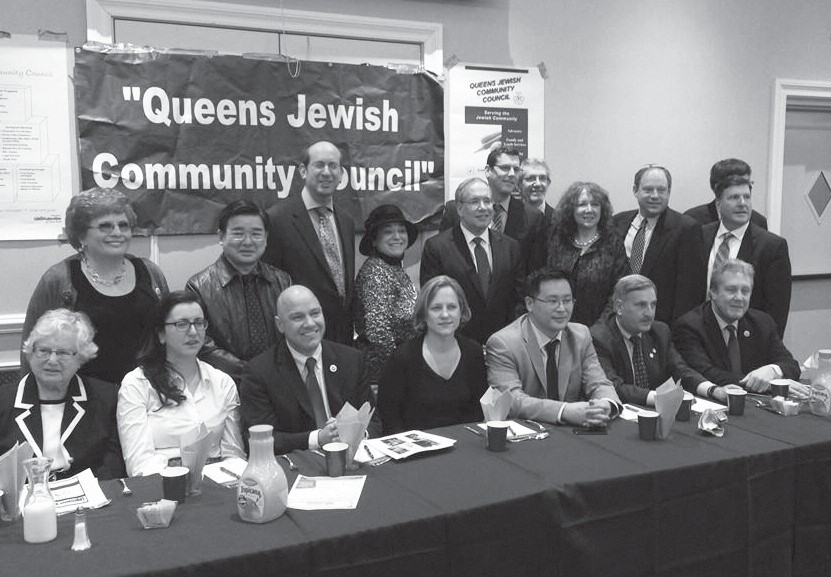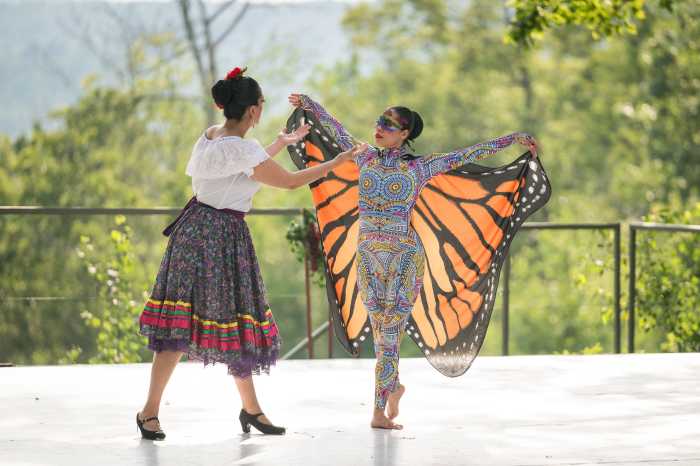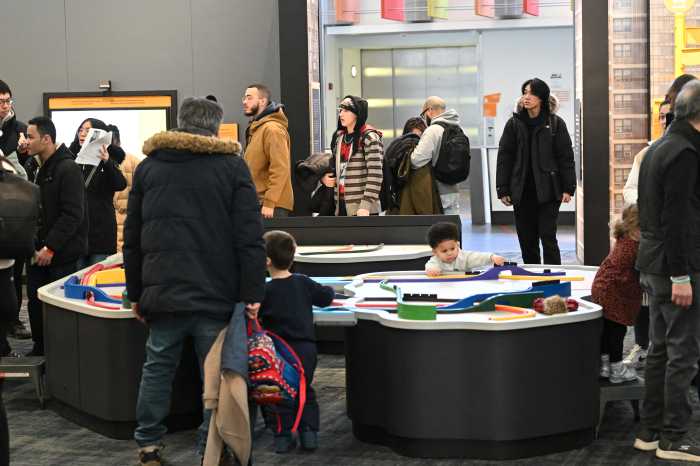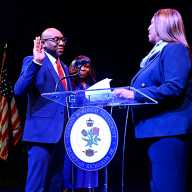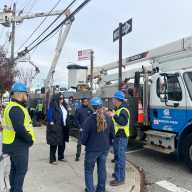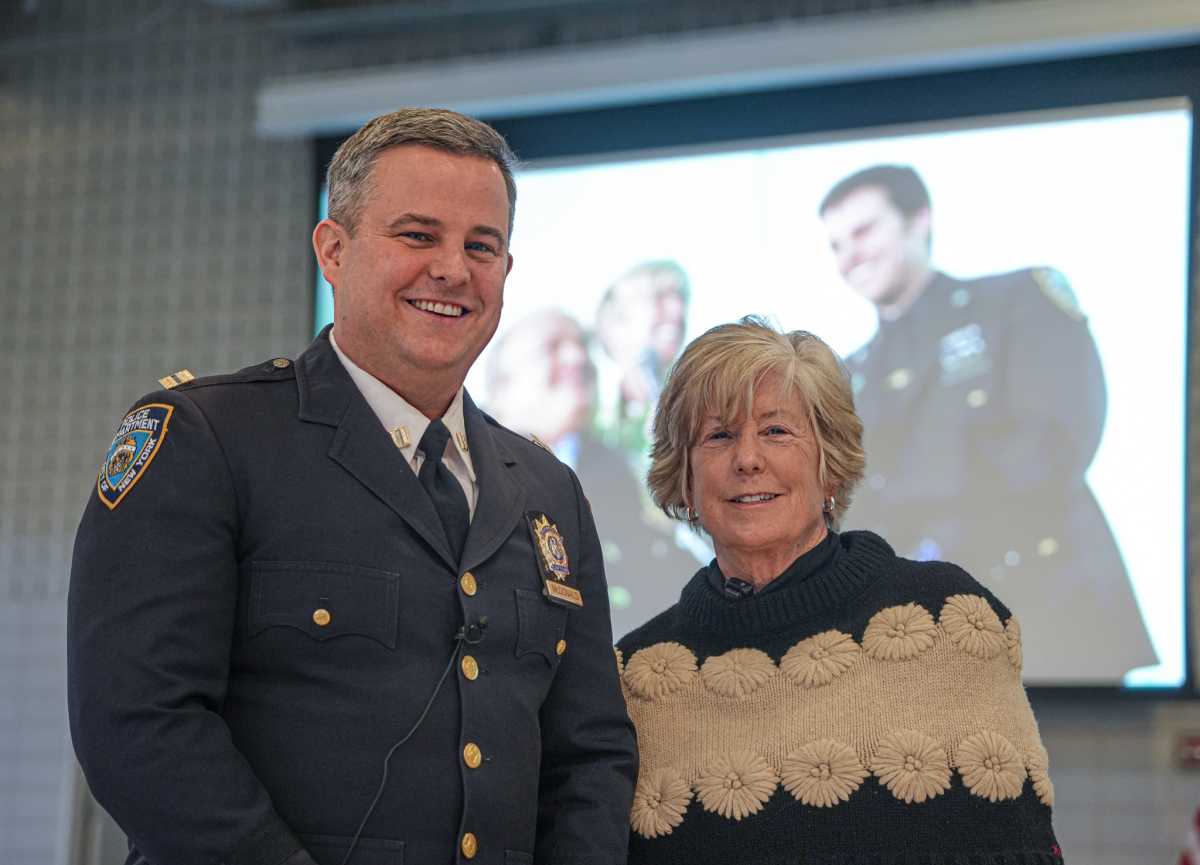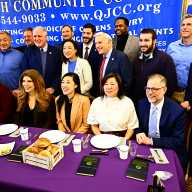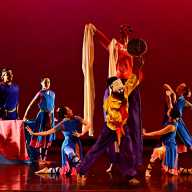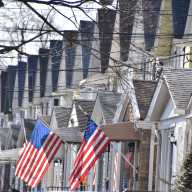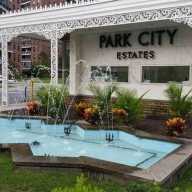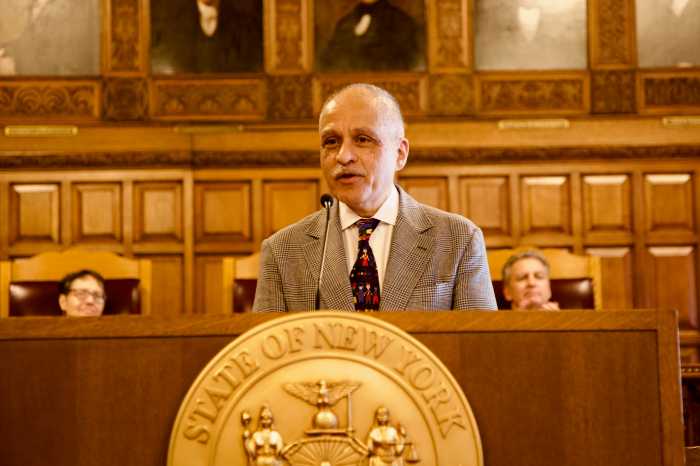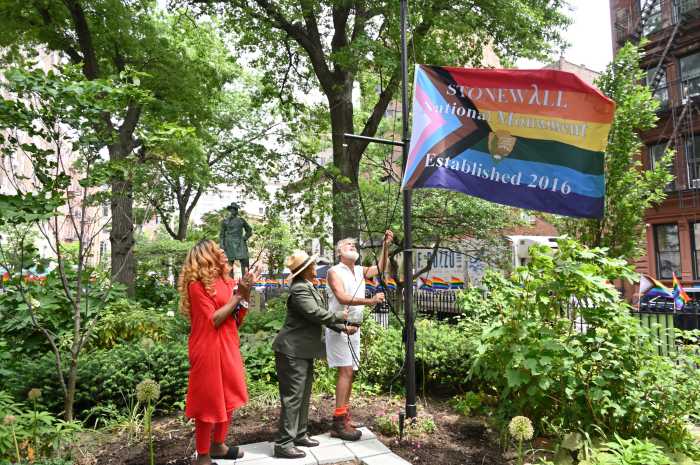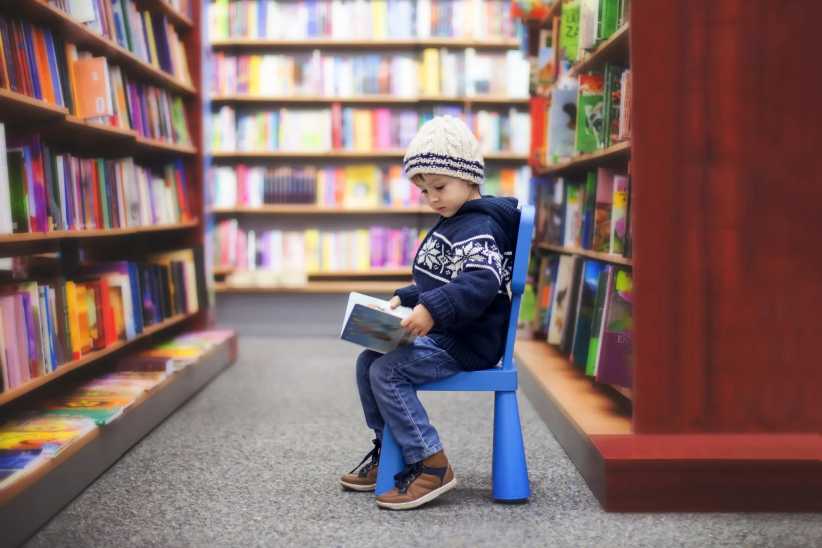Mark ‘Mother Language Day’ At Plaza
City Council Member Daniel Dromm recently worked closely with the Jackson Heights Bangladeshi Business Association (JBBA) and other groups to negotiate the use of the new 37th Road plaza for a celebration of International Mother Language Day.

Dromm reportedly brought the JBBA, the Jackson Heights Neighborhood Association and the Youth Congress of Bangladeshi Americans to the table to discuss the competing bids for use of the Plaza. The legislator worked closely with the 115th Precinct’s commanding officer, Deputy Inspector Thomas Kavanagh, to help the organizations secure permits for the celebration.
Initially, all three organizations had wanted to separately use the Plaza at the same time, on the same day for the celebration. However, Dromm insisted that they all work together and have a united celebration.
In the end, the Youth Congress of Bangladeshi Americans decided to hold their own event in another location, but the other two organizations pulled together over 200 people to attend the event.
International Mother Language Day has its roots in Bangladesh’s Language Movement which fought for the recognition of the Bengali language as an official language of Bangladesh when Pakistan designated Urdu as the sole language in 1948. At that time, Pakistan was in control of the region.
In 1971, Bangladesh began its war of independence and thereby started down its road to regaining its mother language. This experience is familiar to people in many other countries. Today, International Mother Language Day is celebrated in many nations throughout the world and is recognized by the United Nations.
“As an Irish American I can relate to the Bangladeshi experience,” Dromm said. “When the English invaded Ireland in the 1600s, the first thing they did was to forbid the Irish from speaking their mother language.
The Irish were forced to learn English and the rest is history. Nowadays, in Ireland, Irish and English are taught in all the schools.”
This scenario has also happened to Native Americans and other groups throughout history, the Council member noted.
In the end, Dromm stated, “I am glad that the plaza is now being used for cultural celebrations by many community members. Other events are planned for the future and, as time passes, I am hopeful that the Plaza will be seen as a major boost to the local economy because of the large numbers of people that are drawn there.”

